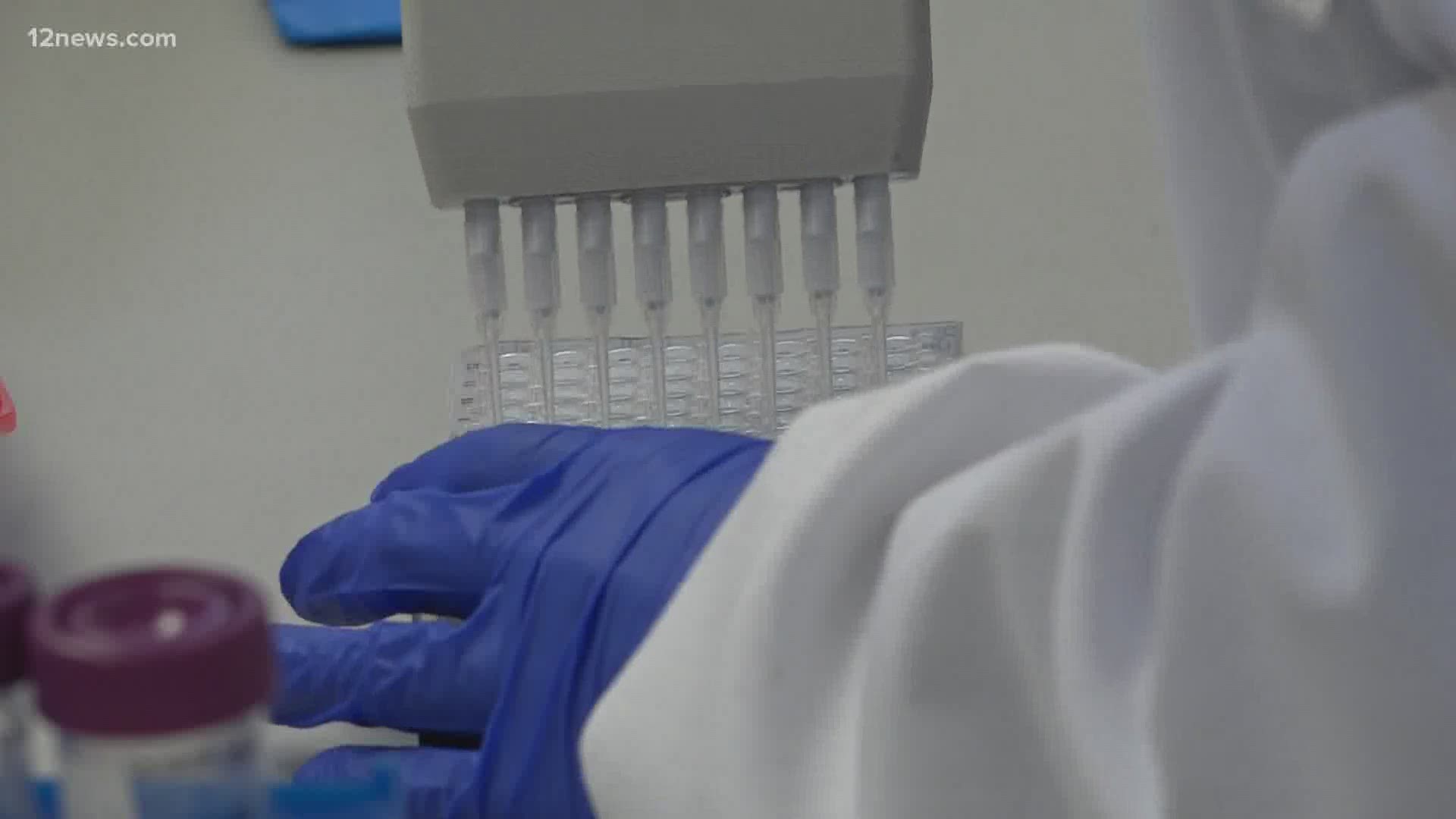PHOENIX — Scientists are finding a particular strain of COVID-19 is likely more easily spread from person-to-person and might be less deadly. Arizona researchers say many of the cases in the state are linked to it.
“The story of this virus is really written in the genome and those mutations can act like plot twists,” Dr. David Engelthaler, director of TGen North, said.
Scientists with the Arizona COVID-19 Genomics Union, which includes TGen, found in April several of Arizona’s cases were connected to a strain out of Europe.
Engelthaler said that mutation they were monitoring can now be found in most of the COVID-19 cases in Arizona.
“Over 90 percent of all the strains that we’ve analyzed in Arizona so far have this particular mutation,” Engelthaler said.
RELATED: Arizona scientists tracking where COVID-19 cases are coming from and how it's spreading in the state
The mutation is called D614G, and unlike strains out of China, it appears to spread more easily.
“Which seems to have, you know, in many cases, cause really large outbreaks,” Engelthaler said.
Engelthaler said the virus appears to be trying to adapt to its host: people.
“Hopefully this virus is starting to act like other human coronaviruses, maybe it becomes more transmissible, but maybe less virulent and less deadly,” Engelthaler said.
While Arizona has been experiencing a surge in COVID-19 cases, Engelthaler said it’s too early to tell if the D614G is impacting the increased cases.
“It’s probably too early to say all the cases, the large increase of cases that we’re having in Arizona, has to do with specific mutations that are occurring,” Engelthaler said.
He warns though that while the virus may be less deadly, that doesn’t mean precautions shouldn’t be taken to protect those most vulnerable.
But Engelthaler said the mutation could help out increasingly struggling hospitals.
“We are hopeful that it’s evolving in a way that we can actually absorb it better, and our healthcare system can deal with it and we’ll see fewer fatalities,” Engelthaler said.
RELATED: How to read COVID-19 numbers

